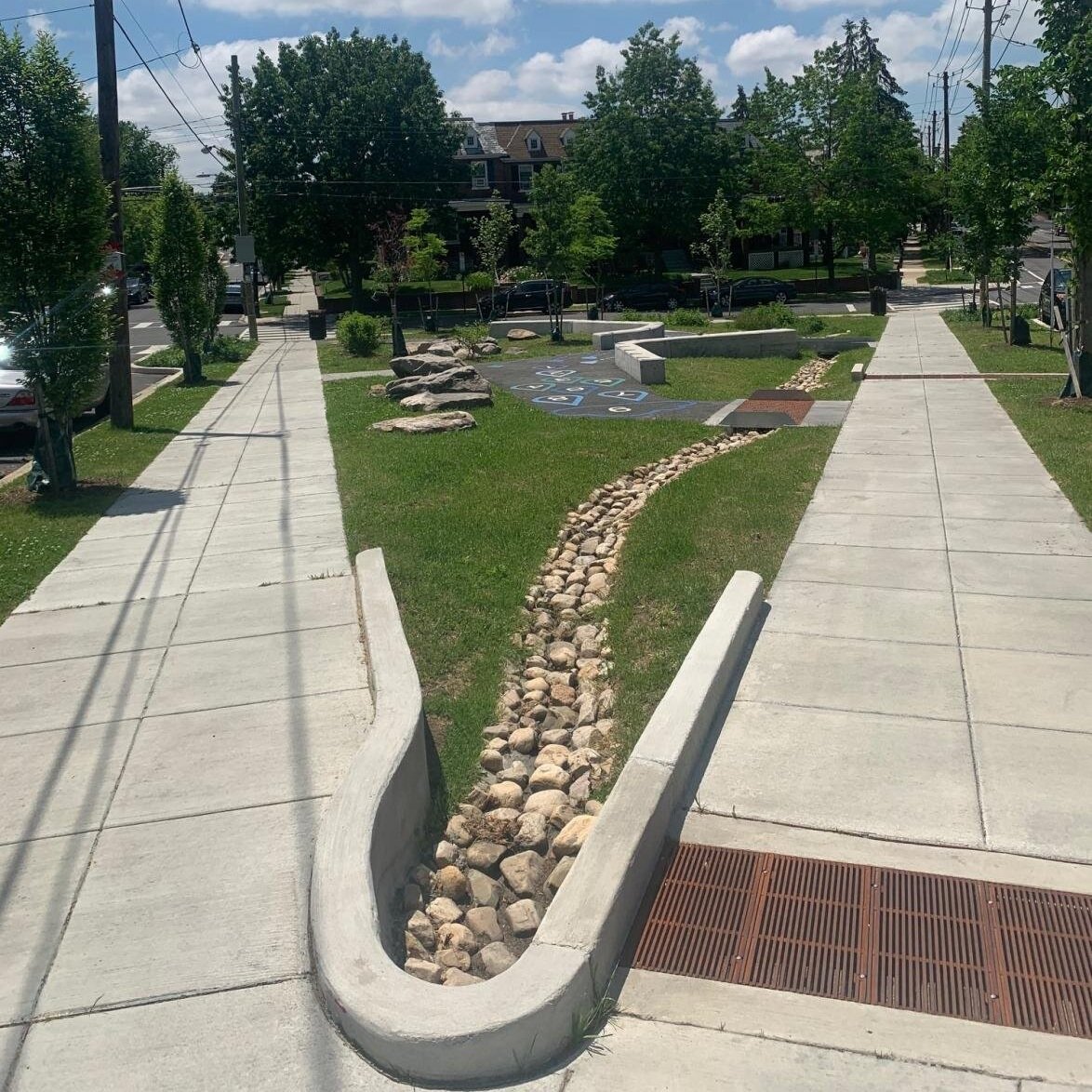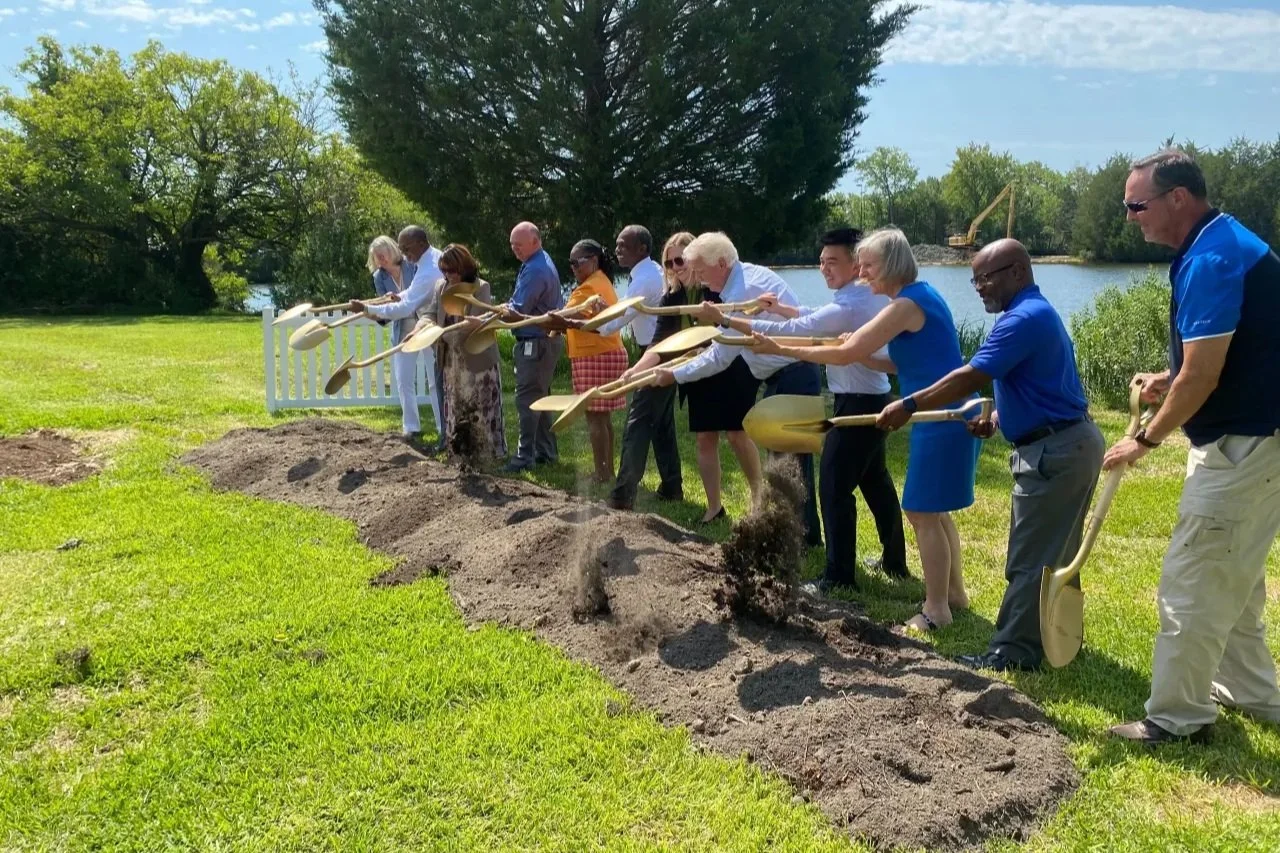Is Climate Over?
by Tee Thomas
2025 has been a long year. And not just in the “dragged on” sense—though it certainly has done that. It’s been long in the way a winter is long. Heavy. Quiet. Tense.
Across political lines and professional sectors, there’s been a shared unease. You can hear it in the sighs at conferences, see it in the gaps in climate reports, and feel it in the awkward pause when someone asks, “So… how are you holding up?”
I’ve had hundreds of conversations this year that started like someone consoling a little leaguer after a tough loss. And honestly, I get it. People feel like the momentum around climate has evaporated. Like the work has gone into hiding. The federal spigots are closing. Words like “climate” and “equity” are being scrubbed from websites. The mood has shifted from optimism to caution to something that looks a lot like despair.
But here’s the thing: climate’s not dead. Not even close.
We’ve Been Here Before
A pocket park that collects stormwater and was built as part of the DC Water Environmental Impact Bond project.
At Quantified Ventures, we’ve been doing this work for more than a decade. We helped launch the first Environmental Impact Bond in D.C. in 2015-2016, and since then we’ve structured hundreds of transactions across water, land, energy, and community health. We’ve persevered through the 3 different presidents, 6 sessions of Congress, the chaos of the pandemic, and the volatility that followed. And we’re still standing. Because we never confused momentum for mission.
We’ve never led with buzzwords. We’ve always seen climate as inseparable from housing, water, workforce, and rural development. Our pitch hasn’t changed because our work has always been rooted in the everyday needs of real communities.
Want to protect a salamander habitat? Great. But you better be thinking about how people in that same place access wastewater systems or afford housing. In our world, nature, infrastructure, and livelihoods are one ecosystem. Not separate issues, but a community of need.
Climate Needs a Rebrand—Not a Retreat
The truth is, our sector took a wrong turn somewhere—maybe around the time we let “climate” become a word too big and abstract to mean much to everyday people. We got lost in the poetry of “ecosystem services,” the obsession with carbon as the only currency for nature. And look, carbon markets have their place, but to someone living in a small town who is watching their main street crumble, it all sounds like Monopoly money.
I’m from a town like that. No stoplights. Life is hard. People are doing their best to make it to the end of the day, not the end of the century. When everything feels like it’s falling apart, you don’t want theories. You want something tangible.
A mountain biker enjoys the ride in Baileys Trail System in Ohio.
Make It Tangible
What does real look like?
Well-paying jobs growing seedlings for wildfire recovery.
Locally owned sawmills turning waste wood into furniture-grade lumber.
Mountain bike trails bringing tourism dollars to post-industrial Appalachia.
Multifamily housing being built adjacent to preserved forestland.
Rural water systems that don’t lose 70% of their drinking water before it reaches a faucet.
This is climate work. It just doesn’t wear a cape.
Quit Sulking. Start Solving
We’ve all got a responsibility right now. To be sharper, more grounded, and less precious. Climate work needs to stop hiding behind the language of virtue and start speaking the language of value—economic value, community value, generational value.
We have to finance work now that’s cheaper than paying for it piecemeal over 30 years. We have to break down silos—conservation, housing, water, resilience, energy—and build systems that serve all of them at once. We need to ask: where do people feel climate first?
A hint: It’s water—always water.
Too much. Not enough. Wastewater that’s breaking municipal budgets. Drinking water that never makes it to the tap. The biggest energy user in a town? Wastewater treatment. The biggest opportunity for cost savings? Renewables and efficiency. The “climate” is already there—we’re just not calling it by its name.
A Rallying Cry
The groundbreaking event for coastal resilience projects at Lake Hampton in Hampton, VA.
So no, we’re not going to hunker down and wait this out. We're not revamping our mission to make it more palatable. We’re not going to pine about the good old days of ample federal money.
We're going to get scrappier. Sharper. More accountable to results that matter.
For those who still want to do the hard, unglamorous work of climate finance—welcome. Grab a shovel. Bring a pro forma. Let’s figure out how to pay for the future with the tools we have right now.
And if you’re waiting for permission to keep going?
You don’t need it.



